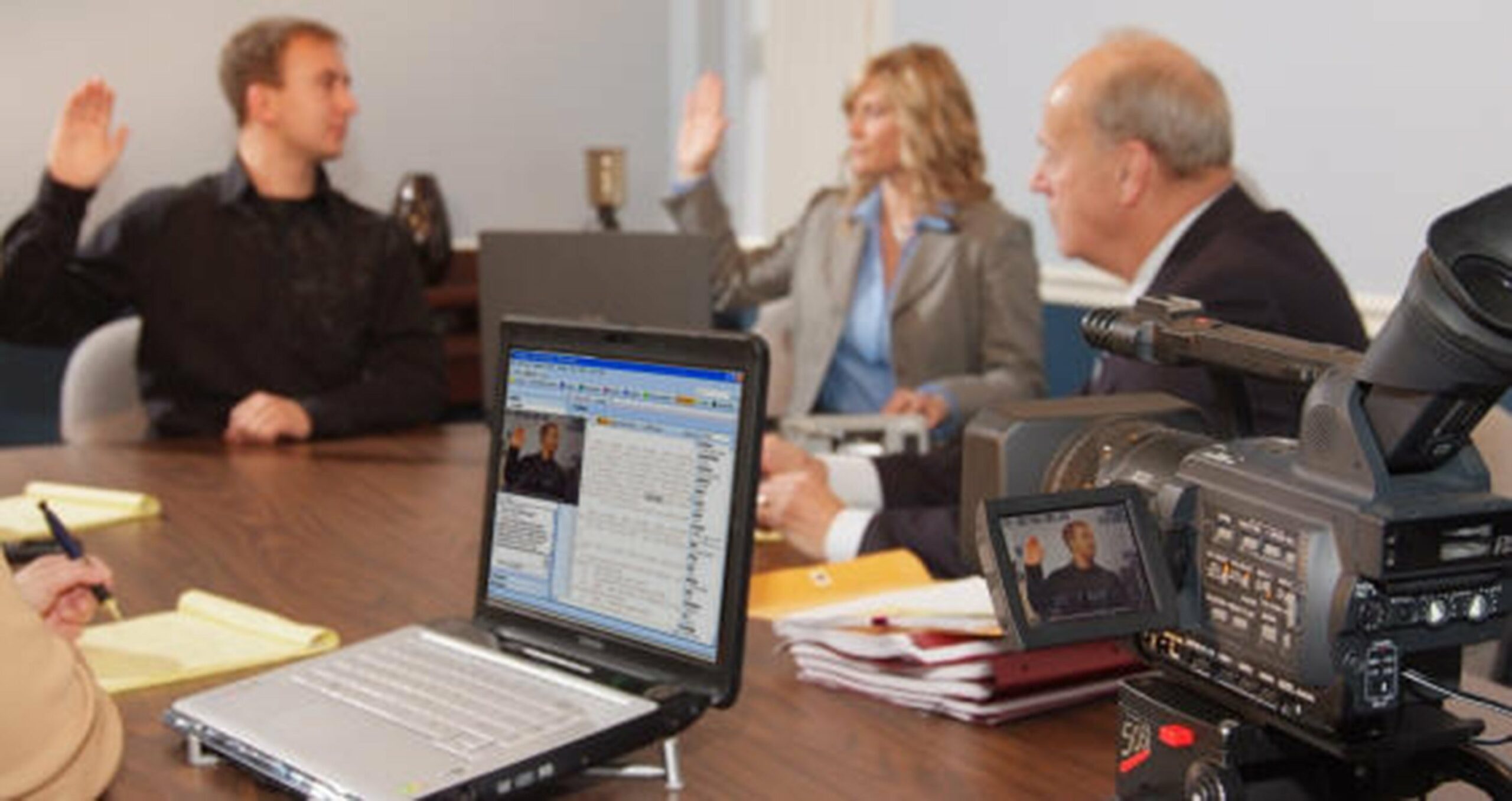The Olympics of Court Reporting

You’re the Witness! Surviving Your Deposition
Whether you’ll be a witness in a case you’re a party to, called by one side or the other to testify about your knowledge, or you’re a corporate representative testifying about corporate practices and records, receiving a Notice of Deposition can be intimidating and anxiety inducing. If you keep these simple tips in mind, you’ll be fully prepared for deposition day and sail through your examination.
1. Do your homework.
Litigation usually involves reams of documents, emails, contracts, calendars, and more. It’s important to review any documents you have that will refresh your memory about topics you’ll be questioned about. If you’re a party to the case, you’ll want to review case filings such as the Complaint, Answer, Interrogatories, and Responses to Interrogatories.
Sometimes a Notice of Deposition will request that you bring certain documents to the deposition. Clearly, you should review those, too, and be sure to give them to your attorney if you are represented by counsel.
If the documents are voluminous, it can be helpful to tab or flag where certain events are referenced or contracts or emails of particular import (keeping in mind that anything written on those tabs will be examined by opposing counsel) so the particulars are easily referenced during the deposition.
Lastly, many attorneys provide their clients with videos or documents that will familiarize you with the deposition procedure. Be sure to review them and pay close attention to the advice given.
2. Conduct a practice deposition.
If you’ve never been deposed before, this is especially important. In a mock deposition, your attorney will ask you likely questions and you’ll have the opportunity to practice your answers. If you ramble then or stumble over the words, it won’t matter. Also, many attorneys use various questioning techniques when preparing their witnesses so the witness can become familiar with potential trick questions or ways the deposing attorney may attempt to fluster them.
3. Image matters.
If your deposition will be videotaped this is even more important. Beyond, obviously, the need to look professional, you need to be aware of how your facial expressions and hand movements can add to or detract from your message.
4. Don’t forget to breathe.
Practicing some relaxation techniques during the deposition will help calm your nerves, and will also help clear your mind and give you an opportunity to think about the full question before starting your answer. If you feel overwhelmed or need an extra minute to think, just let the attorney know that you need a break. They’ll understand.
5. Just the facts.
It’s extremely important to answer only the question you’re asked – and only with facts. Don’t guess or speculate or assume, since those assumptions can be used later to imply that you lied or were otherwise deceptive.
Even expert witnesses – and many attorneys – get a little nervous before a deposition. It’s natural. Hopefully these tips will ease your pre-deposition jitters. (Friendly court reporters, like ours at Durham Court Reporting, can also help!)